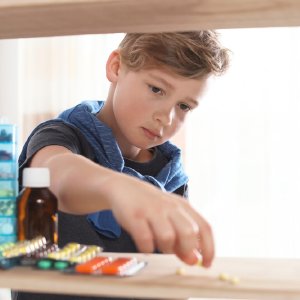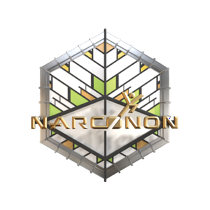The Importance of Drug Education in Schools

It has been said that a society is built on the quality of its education and that society is torn down when ignorance outweighs its knowledge. The United States ranks 17th in the world for student performance in reading, math, and science, according to The Guardian. The U.S. educational system might not be at the top of the rankings, but we’re not exactly illiterate either. However, we should still be doing better than that when one considers the resources at our disposal in the U.S.
So why then is there never any real discussion and education in schools about the threat of drugs and alcohol? Most Americans (if they’re going to be exposed to drugs and alcohol) experience that first exposure when they are teenagers. If a school’s responsibility is to set kids up for life in adulthood, shouldn’t schools be teaching kids about drugs, why they’re harmful, what drugs do, the threats of lethal overdose, side effects, criminal implications, and so on?
An Odd Disparity
In all honesty, our school system has a pretty backward, even archaic approach to drugs. It’s as though, because the use of drugs is so taboo, even just talking about drugs is supposed to be forbidden as well. The best that most schools and role models give teenagers on this subject is a sort of a “Drugs are bad, don’t do them,” line. Well, to the curious mind of a teenager who is easily influenced and subject to peer pressure, that line is just not nearly enough.
And here’s the disparity: The educational system will spend endless hours cramming all kinds of information into the skulls of teens, some of which many of them might never use. Yet schools spend no time educating them on the harms of drugs something they might actually use if drugs are not discussed and addressed! Schools seem to follow this sort of rote, monologue approach to education that has all too much to do with passing a test and not nearly enough to do with genuinely preparing students for life.
An Elementary School in Ohio Breaks the Mold
Of all the states in the U.S., few felt the harsh blow of the opioid epidemic like Ohio did. According to the National Institute on Drug Abuse, “In 2017, Ohio had the second-highest rate of drug overdose deaths involving opioids in the U.S. There were 4,293 reported deaths—a rate of 39.2 deaths per 100,000 persons, compared to the average national rate of 14.6 deaths per 100,000 persons.”
And it wasn’t just 2017 either. Since the opioid epidemic began in the early-2000s, Ohio has been a hot spot for opiate misuse and overdose deaths. So, knowing that their students were very likely going to be exposed to drugs at one point or another if they hadn’t been already, one Ohio elementary school added drug education to their curriculum.
The New York Times reported on the elementary school in the small town of Minford, Ohio. In Minford, it is estimated that about half of the student body has witnessed drug use at home. Since the kids were already being exposed to drug use on the part of their older family members, the teachers began teaching their students how to cope with drug use in the family, what drug use does to people, and how to guard against peer pressure and other influences to use drugs.
This is a rare event in the U.S. educational system. Rare, because a single school saw a problem within its student body, and rather than continuing with a standardized curriculum, the school revised its methods to include additional teaching and support on the subject of drug education and student exposure to drug use in the home.
The Importance of a Proper Education

According to the National Institute on Drug Abuse, in 2017, every single day about 5,480 people had their first ever experience using prescription drugs to get high. That’s more than two million people in one year who had their first exposure to prescription drugs for recreational purposes. The NIDA report goes on to say that, “Misuse of prescription drugs is highest among young adults ages 18 to 25, with 14.4 percent reporting non-medical use in the past year. Among youth ages 12 to 17, 4.9 percent reported past-year non-medical use of prescription medications.”
How many of those incidences of young adult exposure to addictive prescription drugs would have been prevented had those youngsters been taught the harm and danger in drug use? How many of them would have known to stay away from drugs thanks to having learned in school how dangerous drugs are? This issue is black and white. Young people are often exposed to drugs because they don’t know any better.
We sell short the value that a fantastic education can have on an individual. When we don’t put enough value in this subject, we don’t pay attention to what should go into the curriculum. It’s time to add drug education in our schools. It’s easy enough to get into that old argument of responsibility, the “blame game” where schools say its the parents’ role to educate kids on drugs, and where parents say its the schools’ job to do so. Why not have both groups take responsibility for teaching kids about the dangers and risks of experimenting with drugs and alcohol?
Though this is not a discussion on proper parenting, it is worth mention that as we reform the school system to create drug education, we also must insist that parents have discussions with their kids about drugs. Parents need to talk to their children about the harms and dangers behind drugs, what drugs really do, the risk of a fatal overdose or drug-caused car accident, etc. If parents and schools can work on this together, we can really begin to educate our kids in a better direction.
I will leave you with the words of Dr. Martin Luther King Jr., revered preacher and human rights activist:
“The function of education is to teach one to think intensively and to think critically. Intelligence plus character—that is the goal of true education.”
“The function of education is to teach one to think intensively and to think critically. Intelligence plus character—that is the goal of true education.”
And I will leave you with the words of Noam Chomsky, MIT professor in linguistics, civil rights activist, and brilliant intellectual:
“Real schools ought to provide people with techniques of self-defense, but that would mean teaching the truth about the world and about the society.“
If we don’t invest in a truly practical and brilliant education for our youth, what kind of future are we investing in?
Sources:
- https://www.theguardian.com/news/datablog/2010/dec/07/world-education-rankings-maths-science-reading
- https://www.drugabuse.gov/opioid-summaries-by-state/ohio-opioid-summary
- https://www.nytimes.com/2019/06/12/us/opioids-ohio-minford.html
- https://www.drugabuse.gov/publications/research-reports/misuse-prescription-drugs/what-scope-prescription-drug-misuse
- https://www.pragcap.com/the-function-of-education-is-to-teach-one-to-think-intensively-and-to-think-critically/
- https://www.azquotes.com/author/2834-Noam_Chomsky/tag/school
Reviewed and Edited by Claire Pinelli, ICAADC, CCS, LADC, RAS, MCAP


